Ryan Coogler's Cannes masterclass: plans for a female Black Panther sequel and six other things we learned
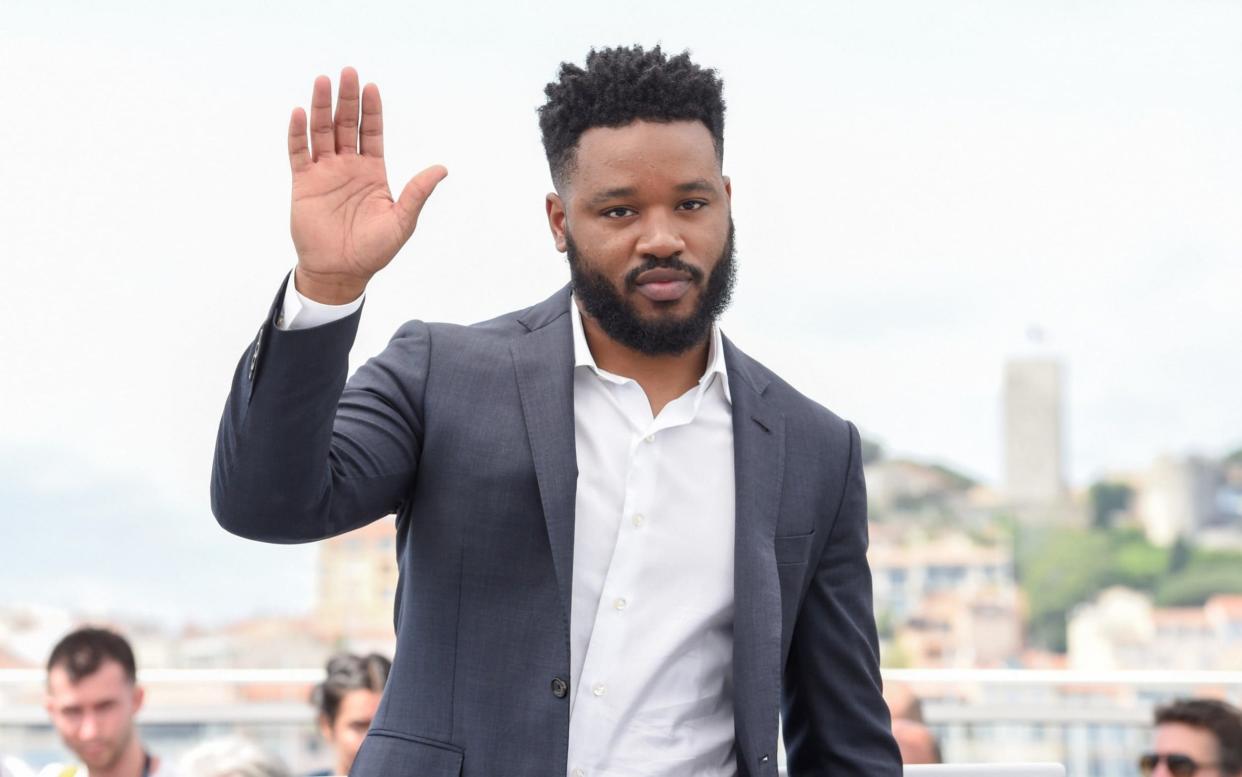
Five years ago, when Ryan Coogler came to Cannes with Fruitvale Station, he was a 26-year-old first-time filmmaker on his first ever trip outside the United States. This year, he returned to host a festival masterclass as the director of the ninth most successful film in cinema history. That was, of course, Marvel Studios’ Black Panther, which crossed the $1.3 billion threshold last weekend. In a wide-ranging discussion with the American critic Elvis Mitchell, Coogler, now 31, dug into the unexpected inspirations behind his boundary-breaking comic-book adaptation, what’s next for the characters he helped bring to the screen, what links his three films to date, and more. Here’s what we learned.
He’d like to make a Black Panther sequel centred on the female characters from the first film
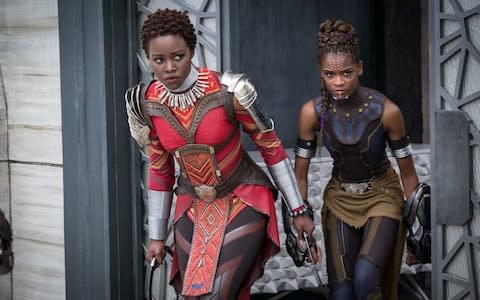
Among Black Panther’s ensemble were three of Marvel’s best-developed female characters to date: Wakandan spy Nakia (Lupita Nyong’o), general Okoye (Danai Gurira) and T’Challa’s tech-whiz younger sister Shuri (Letitia Wright). And Coogler was unequivocally convinced that the trio could carry their own spin-off film.
“Oh man, that would be amazing if the opportunity came up,” he said. “They did it in the comic-book version.” “The first true-blue Wakandans that you see are the Dora Milaje [the all-female royal guard]. So I think that’s powerful and unique, and I hope to see more films like it.”
As for whether Black Panther’s female characters were as important as the males: “I think you could argue that they’re more important,” he said. “There’s a whole section of the film – I hope I’m not spoiling it for anybody – where T’Challa is out of the movie and you’re just following the women, and that’s one of my favourite parts. That part of the movie you feel like you’re watching something fresh. And we have these actresses who could easily carry their own movie – and some of them have before. We had an embarrassment of riches.”
Black Panther was inspired by James Bond and The Godfather
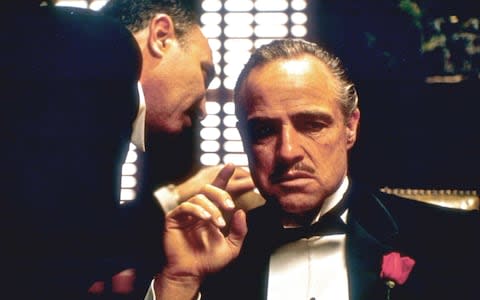
Quizzed on his main cinematic influences for Black Panther, Coogler revealed that Marvel had originally pitched the character to him as “their James Bond”. “They had already been working on stuff, they had a release date, and had already met with other filmmakers including Ava DuVernay, who was talking to them until they parted ways.” (DuVernay later came back to the Disney fold to direct A Wrinkle In Time.) “And I hadn’t thought of that myself, but I liked it.”
“So we watched a bunch of Bond films, but that was early research. Once we realised the themes we wanted to explore, we started to watch different films. A big one was we realised we were making a film about a guy who lives in this secretive country nobody really knows, he works with his family, his father dies, he has to step into this position of power, and it was like ‘Oh man, we’ve got to look at The Godfather.’ So once we pivoted and looked at the Godfather films, a lot of things opened up for us.”
Coogler was reluctant to talk about this new source of inspiration, though. “You tell people you’re trying to make a superhero movie but it’s going to be like The Godfather, and I was worried about people thinking we were aiming too high,” he laughed. “It gets to a certain point in art where some stuff is sacred, and for good reason.”
He also sought out films that immersed viewers in unusual cultures in order to get a feel for how to introduce the fictional African nation of Wakanda to the Marvel audience.
“It was those otherworldly films like Baraka and Samsara,” he said, name-checking two non-narrative, globe-trotting documentaries by Ron Fricke which explore far-flung cultures and landscapes. “We would screen those with our whole art department and talk about how we wanted the areas in Wakanda to feel.”
Former Cannes Palme d’Or contender Timbuktu, by the Mauritanian director Abderrahmane Sissako, was also a key source of inspiration – particularly its score, by Amin Bouhafa, which Coogler analysed with Black Panther composer Ludwig Göransson. “It gave us a sense of what Africa feels like now,” he explained. “You’ve got this vibe of this history of the place butting up against the present.”
To come to terms with directing Black Panther, he had to remind himself of his roots
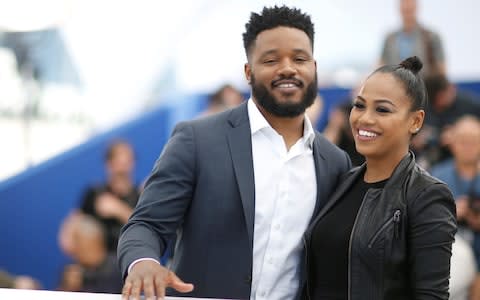
After saying yes to Marvel, Coogler immediately felt daunted by what lay ahead. But his wife of two years Zinzi came up with an invaluable way the humanise the task at hand, that would also help make sense of what the film could end up meaning to a young black audience.
“My wife is real cool – she made me go back to the coming book shop where I first found out what Black Panther was, and I went back there and bought a Panther book, and that reminded me of the awesomeness of it,” he said. “I had to remind myself of that while things were getting heavy – you have to find that kid, go back in time ,and tell him he would be directing Black Panther. My jaw would have hit the floor, my eyes would have lit up."
His films all address the plight of young black men without fathers in America
Though Coogler’s three films to date all sit in very different genres – social-realist biopic, underdog sports drama and superhero – all include major characters who have grown up as young black men in the United States without a paternal influence at home.
“It’s not something that I was consciously going for with each project,” he explained, adding that his relationship with his own father, Ira, is “the most unique I’ve had” because so many of his friends grew up without theirs.
“It wasn’t until I started doing research on Fruitvale Station” – a drama based on the events leading to the death of 22-year-old Oscar Grant in 2009 in Coogler’s home town of Oakland, California – “that I found out Oscar’s father had been incarcerated for his whole life. And [Rocky sequel] Creed was about the relationship I had with my father – it was a ‘what if my dad wasn’t in my life. what if he was a guy I had heard about and had to live up to’? And with Erik Killmonger in Black Panther, it was something specific that we built around the story.”
He recalled that when his father took him to see John Singleton’s Boyz n the Hood and Spike Lee’s Malcolm X – both when he was “very young” – he recognised the absent father figures in both of those films as being enormously influential on their characters’ lives.
“If you think about those films, like in Boyz n the Hood, Tre” – the character played by Cuba Gooding Jr – “is the only one of those friends that has a dad. And if you think about Malcolm X, it was a big thing that his father had been murdered by the Ku Klux Klan, who put him on streetcar tracks. So in both of those films, that element was there.”
He’s a champion of women behind the camera
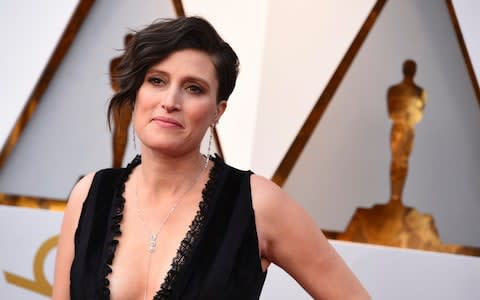
All three of Coogler’s films to date have had female cinematographers and editors, a rarity in the male-dominated business. “Obviously it’s not something that to brag about,” he said, explaining that Rachel Morrison – an Oscar nominee earlier this year for her work on Mudbound – was his director of photography on Fruitvale Station because “she was just the best DP we could get.” The pair were reunited on Black Panther, and he also asked Morrison to shoot Creed, but she was pregnant at the time: “And not just a little bit, but the baby was due while we should have been shooting,” he said. So instead he hired Maryse Alberti, who had recently shot The Wrestler for Darren Aronofsky, a film he and Morrison had scoured for inspiration before filming Fruitvale.
“When I spoke to Maryse she was interested, but she didn’t realise there had been so many Rocky movies – she thought it was one and two, then Creed and that was it. And then she was like, ‘This is the seventh one? What am i [i]doing?[/i]”
He’s hopeful that Hollywood will soon get past its longstanding racial biases
Much film industry scepticism swirled around whether or not Black Panther could possibly connect with non-black audiences, until it made $1.3 billion worldwide. But while the belief persists in the business that films with black leads won’t be watched outside the United States, Coogler draws hope from the sporting world that the mindset is on its way out.
“At the end of the day it’s a business, and the business is informed by all of these things that life is informed by – institutional bias and racism,” he said. "But not that long ago, the owners of American baseball and basketball teams would say they didn’t want black and Hispanic players out on the field, because they didn’t think white people would still come to the games. But by the time I was growing up in the 1990s, everybody in the NBA was black. So why can’t cinema have more black movies?… I hope that we can leave the business in a better way than we found it.”
He’s keen to share the Cannes love
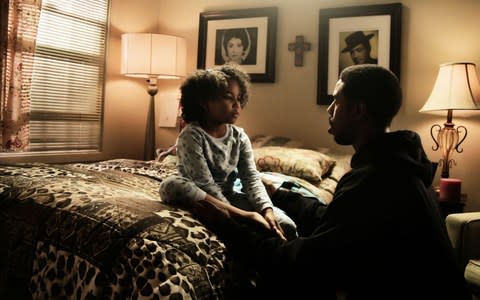
Coogler was invited to Cannes in 2013 when his debut feature, Fruitvale Station, was selected for the Un Certain Regard strand, and won the Prix de l’Avenir, for best first film. He said the experience had been a formative one: "The first time I’d ever been out of this country was at this festival,” he recalled.
“And being around this many people who wee passionate about making movies from different parts of the world changed my life as a filmmaker.” As such, he was keen to use his Cannes Masterclass as a means to pay things forward, bringing 60 black and ethnic minority film students from across France and Africa with him to experience the festival first hand.
“It can be challenging when you're at a film festival and you don’t see faces that look like yours,” he explained. “So i thought it wold be cool if we could bring some young filmmakers from the area, from Paris, and also from Africa, and have them come to the festival for at least a day.”

